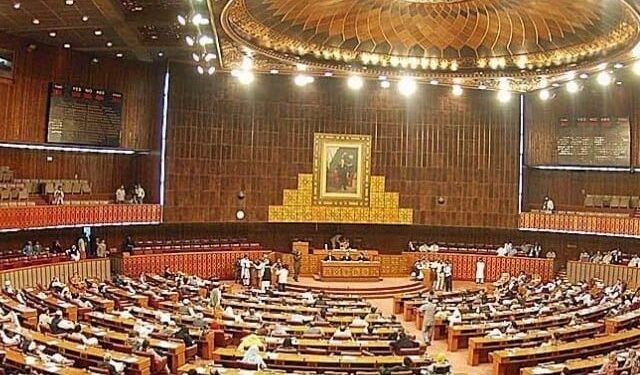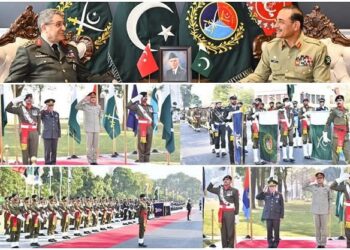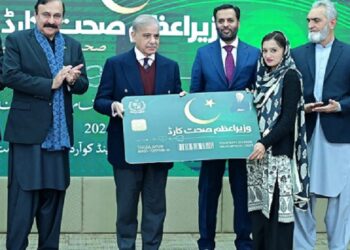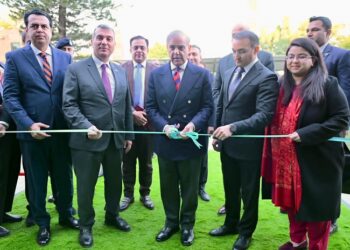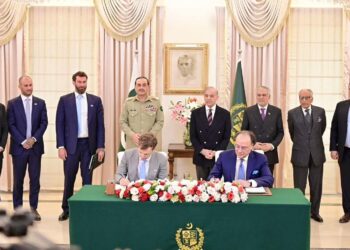Introduction: A Firm Response Amid Regional Tensions
ISLAMABAD – In a strong and unequivocal statement, the National Assembly Standing Committee on Defence rejected recent allegations by India against Pakistan, labeling them as baseless, provocative, and inflammatory. The committee emphasized that Pakistan remains a responsible actor in the region, committed to peace, but fully prepared to defend itself against any form of aggression or false accusations.
The committee’s meeting, held at Parliament House Islamabad, also expressed deep sorrow over the tragic loss of human lives in Pahalgam, India, and condemned the incident. While offering condolences, the committee maintained that India’s attempts to politicize the tragedy by blaming Pakistan were both unjustified and dangerous.
Committee Session Presided Over by Chairman Fatehullah Khan
The meeting was chaired by Mr. Fatehullah Khan, Member of the National Assembly, who led the session with a focus on regional security, legislative reforms, and pressing administrative matters within Pakistan’s defense and security framework.
At the start of the meeting, Fateha was offered and special prayers were said for the departed souls of the mother and sister-in-law of Chief of Army Staff General Syed Asim Munir, expressing solidarity with the military leadership during their time of grief.
Rejection of India’s Allegations Over Pahalgam Incident
The committee issued a detailed statement rejecting India’s accusations linking Pakistan to the recent violence in Pahalgam, a region in Indian-administered Kashmir. The members condemned the loss of civilian lives but firmly denied any involvement from Pakistan.
“India’s continued pattern of scapegoating Pakistan after every incident in Kashmir is deeply troubling and reflects a broader strategy of disinformation,” the committee remarked.
They reiterated that Pakistan has itself been a frontline victim of terrorism and has sacrificed thousands of civilian and military lives in its fight against extremism. The committee urged international organizations and media outlets to recognize these sacrifices and view such accusations from India through a critical lens.
Pakistan’s Commitment to Regional Peace
The members of the Standing Committee reiterated Pakistan’s longstanding commitment to regional peace, security, and cooperation. As a responsible nuclear-armed nation, Pakistan has consistently pursued diplomatic solutions, participated in global counter-terrorism efforts, and sought confidence-building measures with India and other neighboring countries.
However, the committee emphasized that any unprovoked aggression or misinformation campaign from India would be met with a “befitting and effective response.”
“Pakistan does not seek conflict, but it will never tolerate baseless accusations or hostile acts,” said one committee member.
Concerns Over India’s Aggressive Diplomatic and Strategic Moves
The meeting also highlighted India’s recent actions that have further strained bilateral relations:
- Unilateral suspension of the Indus Waters Treaty, a critical water-sharing agreement brokered by the World Bank in 1960
- Closure of the Attari-Wagah border, impacting trade and people-to-people ties
- Withdrawal of diplomatic envoys, creating a vacuum in official communication
The committee warned that these measures were not only hostile but dangerously escalatory, especially given the volatile nature of the South Asian region, where both India and Pakistan possess nuclear weapons.
“Diplomatic isolation and economic warfare will only deepen mistrust and instability,” the committee cautioned, urging India to return to the negotiation table.
Review of Pakistan Navy (Amendment) Bill 2024
Beyond regional tensions, the committee also focused on important legislative work, including a detailed review of the Pakistan Navy (Amendment) Bill 2024.
The Ministry of Defence presented a comprehensive briefing on the bill’s provisions, which include:
- Expansion of welfare initiatives for naval personnel and their families
- Strengthening legal measures to address electronic crimes
- Standardizing military procedures to align with recent amendments in the Pakistan Army and Air Force Acts
The objective is to ensure legal uniformity across all three branches of Pakistan’s Armed Forces, enabling smoother administration, judicial processing, and welfare initiatives.
After thorough discussion, the committee unanimously recommended that the bill be approved by the National Assembly.
Survey and Mapping of Mineral Resources: Security Implications
In another important segment of the meeting, the Surveyor General of Pakistan along with secretaries of the Minerals Department from all four provinces and Gilgit-Baltistan, briefed the committee on the national mineral mapping strategy.
The discussion focused on the growing involvement of private entities in the exploration and mapping of Pakistan’s mineral wealth. While acknowledging the potential benefits of private sector participation, the committee expressed concerns about:
- National security risks posed by sharing geospatial data with private firms
- The need to protect sensitive topographic information
The committee urged that priority be given to the Surveyor General’s Department for all mineral and resource mapping projects, to maintain sovereignty over strategically valuable data.
Educational Funding Disparities Between FGEI and FDE Institutions
A significant administrative issue discussed was the inequitable distribution of funds between:
- Federal Government Educational Institutions (FGEI) under the Ministry of Defence
- Federal Directorate of Education (FDE) institutions under the Ministry of Education
Committee members expressed concern that FGEI schools receive less per-student funding than FDE institutions, despite catering to the children of military personnel and civilians in remote or conflict-prone regions.
To address this, the committee summoned the secretaries of the Ministry of Finance and Planning for the next session, demanding an explanation and a strategy to ensure fair and balanced resource allocation.
Attendance and Participation
The meeting was attended by several prominent Members of the National Assembly (MNAs) including:
- Mr. Aqeel Malik
- Abrar Ahmed
- Saba Sadiq
- Spandiyar Bandara
- Salahuddin Junejo
- Sanjay Parwani
- Gul Asghar Khan
- Plain Baloch
- Muhammad Aslam Ghuman
- Ghulam Muhammad
- Ms. Zeb Jaffer (Parliamentary Secretary for Defence)
Also present were senior officials from the Ministry of Defence, including:
- Secretary Defence Lt. Gen. (Retd.) Muhammad Ali HI(M)
- Additional Secretary (Army) Maj. Gen. Aamir Ashfaq Kayani
- Senior officers from the Ministry of Law and Justice and provincial defense departments
Their participation underscored the inter-institutional collaboration necessary for addressing both security threats and institutional reforms.
Conclusion: A Strategic, Unified Response to Domestic and International Challenges
The National Assembly Standing Committee on Defence’s recent meeting served as a comprehensive review of national defense, regional diplomacy, legislative reform, and administrative equity.
With India’s provocative actions on the rise, the committee reaffirmed Pakistan’s resilience, readiness, and commitment to peace. At the same time, legislative and bureaucratic advancements—including reforms in military law and education—illustrate a commitment to internal strengthening.
As Pakistan continues to face external pressures and internal policy challenges, such strategic oversight by parliamentary bodies is crucial for ensuring stability, security, and sustainable development.
















